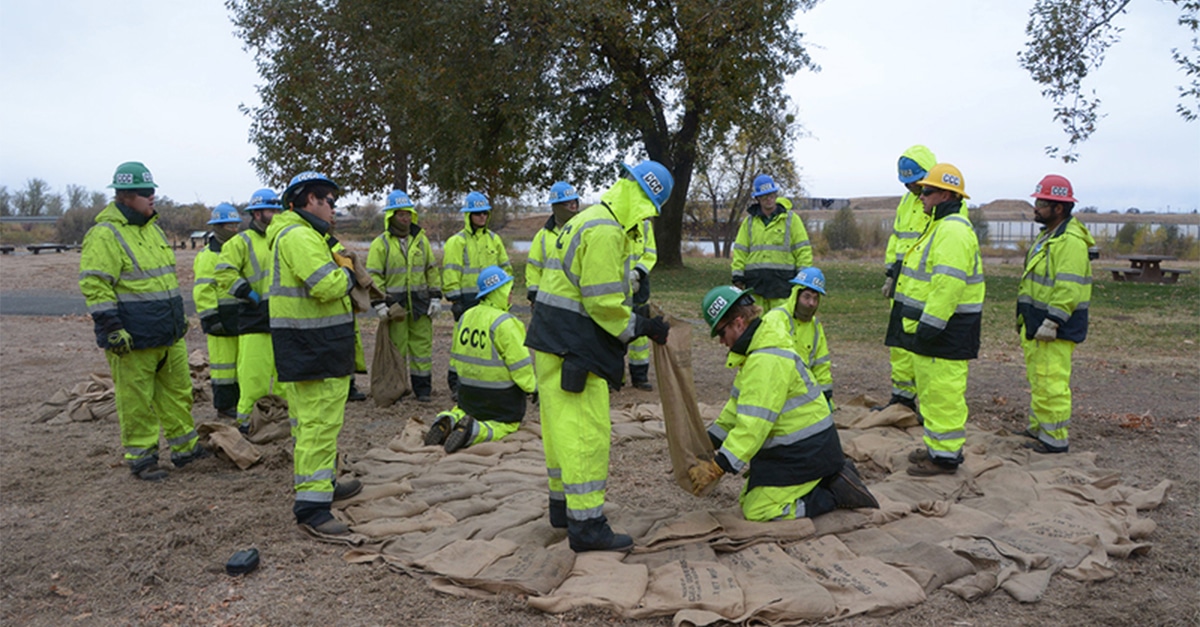California Conservation
Pathway to success with the California Conservation Corps…
When 22-year-old Jerry Randolph moved from Arcata to Redding last year to join the California Conservation Corps, she knew she’d be challenged. After all, the CCC’s motto is “Hard work, low pay, miserable conditions and more!”
“I was mostly looking for a way to step outside my comfort zone,” says Randolph. The California Conservation Corps has been helping young people 18-25 step out of their comfort zones and into meaningful work since 1976 when it was signed into existence by then-Gov. Jerry Brown.
No stranger to hard work, Randolph had two jobs in retail when she signed up for the CCC. She’d tried college but didn’t like it. She also didn’t like being at the whim of people scheduling her work hours. “A lot of times it was just odd hours,” she says. “I would come in for extra hours but sometimes there wouldn’t be any hours. It was getting real difficult.”
At the Redding CCC, she found long, exhausting hours, but work that holds meaning and expands her job skills. “All that hard work leads to great and valuable experience for our young people,” says CCC Director Bruce Saito, who emphasizes the CCC’s goal to introduce its members to potential long-term employers such as the US Forest Service, state parks and other agencies through project partnerships. “We tell Corpsmembers, ‘Every day is a job interview.’ We have high standards and we want people to do the best they can.”
Soon after arriving for service, Randolph found herself building an ADA-accessible trail at Madora Lake in the Plumas-Eureka State Park and learning stone masonry. “I was excited about that,” she says. “When I joined, I didn’t know what I wanted to do in terms of a career. Getting my hands on things like a chainsaw has really opened my eyes to what I can do mentally and physically.”
She has also toured Shasta College as a Corpsmember and learned about the heavy equipment program there. Higher education now seems like something she’s suited for if it will get her onto a backhoe.
The North State hosts four CCC Centers, including three non-residential outposts in Yreka, Chico and Redding and the Butte Fire Center in Magalia. Corpsmembers may apply to one close to home, or, like Randolph, move to a different part of the state. There are nine residential and 16 non-residential centers throughout California.
A major local CCC project in the last few years has been rehabilitation from the Carr Fire. “A lot of the time it felt like we were working in people’s backyards,” says Randolph, who has spent weeks on the project. “The fuel reduction project constantly felt like a huge mess of fuel we were cutting through.” While the undertaking epitomized the hard work, low pay, miserable conditions motto, it had its perks in the form of community appreciation. Neighbors would stop by to say thank you. For Randolph, a true perk to being a Corpsmember is “seeing our ability to influence the larger community.”
There’s also a sense of camaraderie that enriches. “Being part of a crew is a family outside of my family,” she says. “A lot of the reason why people stay past their limits is they have their (Corps) family pushing them.” This was particularly meaningful to Randolph, who said her friends and family of origin questioned her fitness for Corps service initially because she was overweight.
Her initial desire to step out of her comfort zone was undertaken knowing full well it would be physically demanding. “I was so scared my first day,” she says. “Now I’m the last person left.” She’s outlasted all of her fellow Corpsmembers, lost 30 pounds and can heave a chainsaw with the best of them. “I have gained so much mental strength, so much physical strength,” she says, voice dripping with accomplishment.
In addition to work experience, Corpsmembers receive support from a Navigator, who helps with resume development, job and college applications and other life skills. Those who join having not finished high school are enrolled in a charter school to achieve a diploma. Some arrive with college degrees and others are anywhere in between. Scholarship opportunities are available during service to support further learning a CCC graduate may aspire to.
In late July, Randolph was training for a fire crew as an additional challenge for herself in her second year of service. “As soon as fire training came up, I really wanted to get that experience,” she says, affirming that she’s been keen to take on any challenge offered.
“It really is hard work, low pay and miserable conditions,” Director Saito says with a laugh. “But it’s the greatest thing you’ll ever experience, also.”
Photo courtesy of California Conservation Corps




